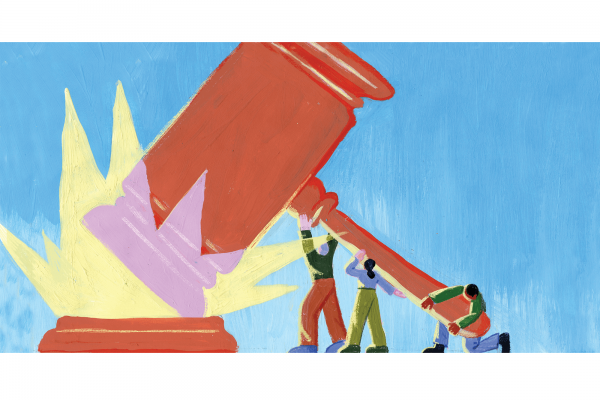NEARLY A YEAR after the death of George Floyd, a jury found his killer, former Minneapolis police officer Derek Chauvin, guilty of all charges. My initial reaction was relief—that this trial, which felt so momentous, had concluded with accountability for Chauvin’s crime—but for many of us, relief was tempered by real sorrow and anger at knowing that this accountability will not bring Floyd back to his loved ones and community. And while a single verdict is a long way from justice for a brutal and broken system in which police kill 1,000 people every single year, this verdict could, should, and must open the door to long overdue transformation of policing and criminal justice in America—and we should settle for nothing less.
It is critical to remember the extraordinary forces that led to this verdict—it should not take so much to convict police for abuse and lethal violence against Black people and other people of color. It took a dramatic and painful video that the world watched over and over, extending the trauma of Floyd’s family and friends to millions of others. It took police leaders taking a highly unusual stand against an officer in their own department, when that should be normal in a case like this. It took overwhelming and incontrovertible evidence. All this shows just how hard it is to convict police officers who violate and kill Black and brown Americans, which remains the common practice of American law enforcement. It should not take such a video, or a world-changing movement in response, to ensure accountability when the police regularly commit such violence against citizens of color.
Read the Full Article

